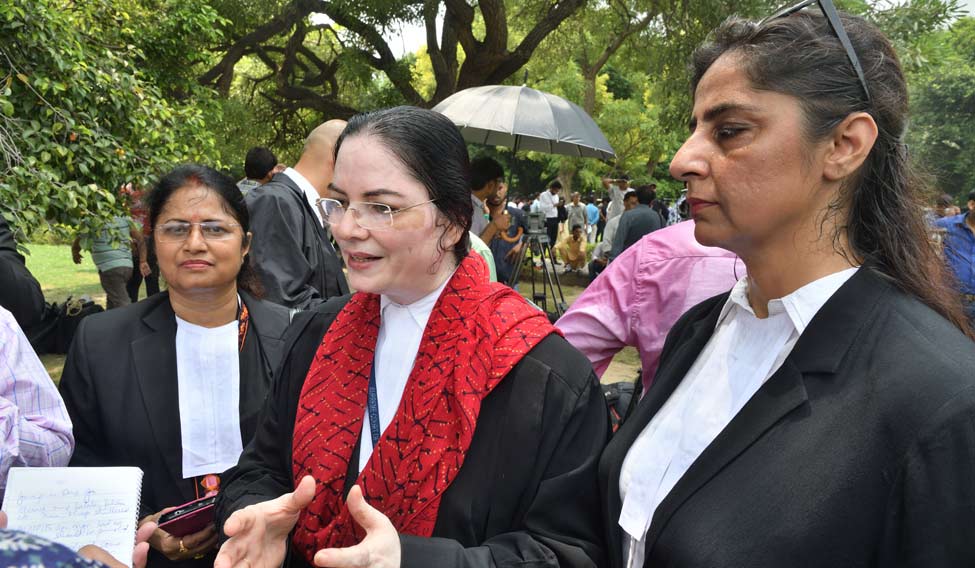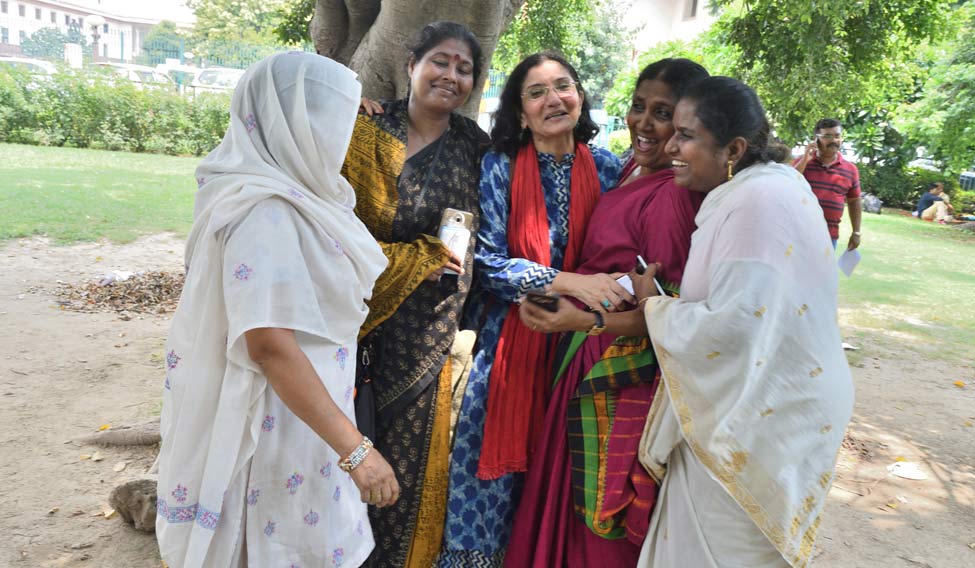At 10.30 am sharp on Tuesday, the five member bench of the Supreme Court, which was looking into the constitutional validity of the instant triple talaq or talaq e biddat, sat down to declare its verdict on an issue which has gripped national attention. Chief Justice J.S. Khehar, as senior most judge, opened with his remarks. He upheld the validity of the practice, and this statement cast instant gloom among petitioners within the courtroom and outside. People erupted on social media to vent their spleen at “a golden opportunity to correct a situation having been squandered away.” Khehar noted that talaq e biddat was governed under personal law, but he said that within six months the government should frame legislation to do away with instant talaq. Justice S. Abdul Nazeer was also in agreement with the chief justice.
However, then Justice Kurian Joseph spoke and said that the practice was not integral to Islam. Justice Rohinton Nariman followed speaking on behalf of himself and Justice U. Lalit. He called the talaq e biddat a sinful act. Nariman said it was arbitrary and whimsical and must be struck as void. It took a few moments before everyone realised that the majority decision had struck down instant talaq absolutely.
The operative part, the order says: In view of the different opinions recorded by a majority of 3:2, the practice of talaq e biddat — triple talaaq is set aside. “From this moment, it is abolished,” said Farha Faiz, advocate, who'd moved the court against the practice. ``Even in theocratic countries the practice is abolished, how was it even allowed in India?'' She represents the Rashtrawadi Muslim Mahila Sangh.
Elsewhere in the lawns outside the courtroom, lawyers and petitioners tumbled out, whooping with joy. Women hugged each other, saying that in the 70th year of India's independence, they'd won their freedom.
The journey hasn't been easy for the petitioners. The court was hearing a batch of petitions against instant talaq, five filed by individual women who've become the face of the struggle—Shayara Bano, Ishrat Jahan, Gulshan Parween, Afreen Rehman and Atiya Sabri—and several others by women's organisations. “We've faced threats, insults, we've braved a lot for this moment,'' said Zakia Soman of the Bharatiya Muslim Mahila Andolan. “Now, armed with this decision, we can take our fight for gender empowerment and equality further.''
 (From left) Womer lawyers Rekha Banker, Dr Chandra Rajan and Ritu Khera, after Supreme Court verdict on triple talaq | Sanjay Ahlawat
(From left) Womer lawyers Rekha Banker, Dr Chandra Rajan and Ritu Khera, after Supreme Court verdict on triple talaq | Sanjay Ahlawat
“Bahut aitihasic raha aaj ka din (today was a historical day),'' a beaming Shayara Bano said. She has nothing to gain from the order except moral victory. Her husband was abusive; he forced her into umpteen abortions, dumped her and remarried in a trice. “I didn't withdraw the petition after the remarriage, because by then, it was no more about me, it was about every Muslim woman,'' she said. Shayara's personal struggle is on. She wants custody of her two children, a 13-year-old son and 11—year—old daughter, who are with her former husband. Meanwhile, she's doing an MBA and wants to become financially independent.
So what does the verdict finally mean? Though experts say that the 395- page judgment will have to be studied in detail, the operative part is that instant talaq is no longer valid in India. Does the government has to legislate now? “It was not the decision of the majority, other judges did not mention this. So it should be seen as a suggestion, not a directive,'' said Congress leader Salman Khurshid, who was amicus curiae in the case.
The All India Muslim Personal Law Board was seen as the villain of the piece. Its advocate Ejaz Maqbool said, “We, too, have said talaq e biddat is not the right way of divorcing, but if a husband uses this, the divorce is valid. I cannot say whether the verdict is good or bad, or that it has come to the rescue of Muslim women. Perhaps, one should also look at thousands of Hindu women going to family courts for maintenance before we conclude which segment is better off.''
Meanwhile, BJP leader Subramanian Swamy said that this was just the beginning of the movement to get Indian Muslim women on par with other Indian women. “Their rules of inheritance, the compulsion to wear burqa and the fatwas against those who play tennis or wear shorts have to be done away with. The fight will continue,'' he said, adding that the next aim was to get a Uniform Civil Code in place for the country.





